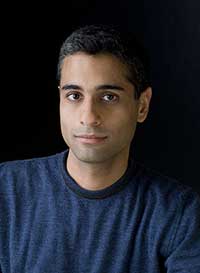Mattia P. Galletti is lead technical specialist for the International Fund for Agricultural Development (IFAD), a Rome-based agency of the United Nations focused on the financing of food production projects in the developing world. For more than 20 years, he worked as program manager for IFAD’s Asia and Pacific Division, running programs for Bhutan, Laos, Mongolia, Papua New Guinea, Iran, China, Vietnam, Indonesia, and India.
In advance of his 5 p.m. September 16 visit to the Blum Center, we asked him five questions about agricultural development.
1. What are the most pressing issues in food production in the developing world?
In the past, most of the attention was given on maximizing agricultural productivity per unit of land. Now climate change and the need to safeguard long-term natural resource use are calling for additional challenges in terms of increasing productivity per unit of water, energy, and labor, depending on local contexts. There is also an effort to increase the nutritional content of food. While doing that, it is necessary to strengthen the profitability of small-scale farming activities without transferring additional risks to farmers. A neglected issue is also: How many farmers will be left in 20 years from now?
2. Which entities are best positioned to provide solutions to food production in the developing world?
These solutions can be provided thanks to the collaboration of all, public and private entities, starting with the farmers themselves, leveraging their own knowledge and skills. 2014 has been declared the Year of Family Farming, a unique opportunity to advocate the need to support smallholders who are the priority target group for IFAD’s investments.
3. When it comes to strengthening food security, which technologies have the greatest potential?
Food security is not only a matter of technologies to increase food production. It is a matter of ensuring access to adequate, healthy, and nutritious food by all. That’s why we need to address the issue of poverty, which is largely a rural phenomenon. At present, there is food for all in the world. More attention should be given to the potential of technologies and practices that can reduce the 30 percent to 50 percent of food that goes to waste every year.
4. If you could change one thing in your field, what would it be?
I would eliminate the complacency and the resignation to the idea that nothing more can be done. The amount of resources committed to hunger eradication is negligible compared to what the world spends in other sectors, like the military. Access to food will remain an issue until poverty and rising inequalities fall in both hemispheres.
5. What led you to work for the International Fund for Agricultural Development?
My purpose in life has been to work in international development on poverty issues. I started with IFAD, whose mandate is to fight rural poverty, right after the completion of my studies. I considered myself a privileged person because for more than 25 years I have been working on what I wanted.
All views expressed here are those of Mattia Prayer Galletti, not the UN’s International Fund for Agricultural Development.





